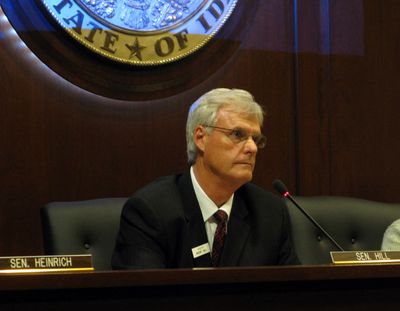Homeless shelter tax break rejected
Exemption would have cost $15,000 a year

BOISE – A temporary tax break for homeless shelters that had unanimously passed the Idaho House went down to unanimous defeat in a Senate committee Tuesday, as the debate over how to deal with Idaho’s myriad tax exemptions intensified.
Idaho’s exemptions and exclusions from its state sales tax – including the exclusion of services from the tax – exceed the amount the tax collects. But numerous efforts over the past decade to review and repeal existing exemptions have fallen short amid opposition from the businesses and groups that get the breaks.
“I appreciate the good work of these and other groups,” said state Sen. Joe Stegner, R-Lewiston. “The problem is that this conflicts with some very fundamental challenges in my opinion that Idaho has, and that basically is a lack of a clear policy direction on how we hand out the favors of state government – this is the power of government to tax or not tax.”
State Rep. Branden Durst, D-Boise, told the senators his exemption was different from existing tax breaks: It’s temporary, just for two years; it targets a specific need, as homeless shelters are overflowing due to the economic downturn; and it’d save the state money to have the shelters help more people with the money they would save from not paying sales tax for two years.
His pitch won strong favor earlier in the House, which unanimously passed the bill, HB 435.
Senate Tax Chairman Brent Hill, R-Rexburg, said, “Ultimately, it’s just not the desire of the committee to continue to expand sales tax exemptions until or unless we’re willing to look at the whole group of them, and try to come up with some criteria for determining who should get the exemptions and who should not – rather than just who gets the favors and who doesn’t.”
Durst’s bill would have cost the state $15,000 a year for two years. Five nonprofit homeless shelters around the state, including one in Bonner County, would have qualified for the exemption.
The Senate committee’s vote came just hours after Congressman Walt Minnick had addressed the Senate and House and urged the appointment of a bipartisan commission to review the state’s sales tax structure, with a “straight-up, yes-or-no vote in the next Legislature” on the panel’s solutions.
“I think that’s something worth looking at,” Hill said.
The Senate panel’s rejection of Durst’s bill also came less than an hour after it backed introduction of a bill proposed by Sen. Chuck Winder, R-Boise, to require the Legislature to review all sales tax exemptions at least once every five years, and to make any new ones enacted after July 1 expire after five years unless specifically extended.
That came on the heels of two similar measures already introduced: HB 396, from Rep. Wendy Jaquet, D-Ketchum, would set up a commission to review all existing sales tax exemptions at least every eight years; and SB 1277, a bill sponsored by seven Senate Democrats, would make all state tax exemptions, credits and deductions expire on Jan. 1, 2012, unless specifically extended by state law, and would require all new exemptions to expire in five years.
Stegner, however, noted that such attempts in the past have failed. “There is, in my opinion, a significant barrier to try to do that in that manner, because you have a tremendous amount of pressure from the people that enjoy the exemption, and no offsetting opinion particularly from the rest of the state,” Stegner said.